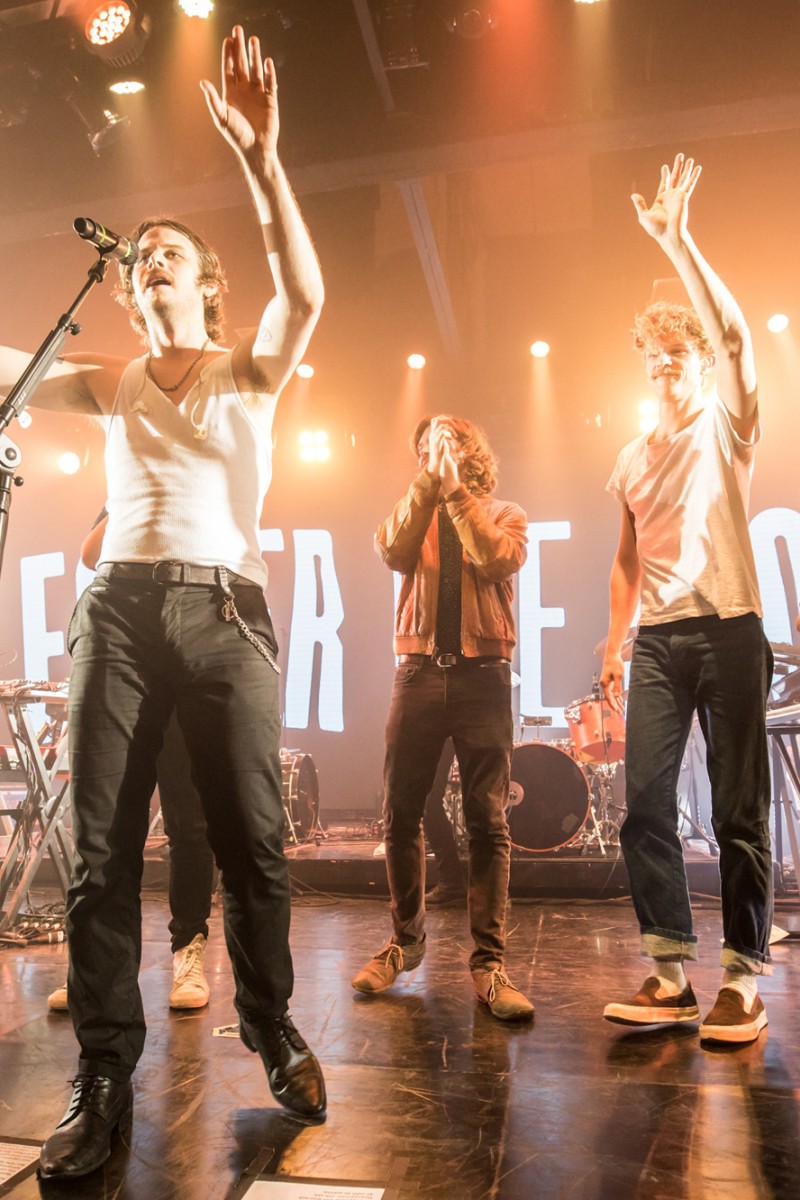
Foster the People on how they use joy as a weapon and why artists who avoid writing about controversial topics are cowards
The American indie pop band told Young Post about the power of art, and the importance of empathy
 Foster the People isn't afraid to write lyrics about sensitive political topics.
Foster the People isn't afraid to write lyrics about sensitive political topics. The year 2011 was an eventful one, marked by the fairytale wedding of Prince William and Kate Middleton, the start of the Arab Spring, and the devastating earthquake in Japan.
However, one thing was universal – wherever you were in the world, you couldn’t escape the mega hit Pumped Up Kicks, the anti-gun violence anthem by American indie pop band Foster the People.
The band just released their third studio album, Sacred Hearts Club, and is now finishing the last leg of their China tour. Just before their concert in Shenzhen, Young Post chatted to the band about using joy as a weapon, and the importance of art in the fight against violence and injustice.
While many musicians today avoid politics and controversial topics so as not to upset fans, and ensure record sales aren’t affected, the band’s lead singer and guitarist Mark Foster believes in doing the exact opposite.
“Those artists are cowards,” he says. “Throughout history, it’s been our job as artists to observe the culture and react to it.”
Pumped Up Kicks turned Foster from a struggling jingle writer into an overnight sensation: to date, the song has racked up more than 350 million views on YouTube. But don’t be fooled by the upbeat melodies or the mesmerising bass line into thinking it’s mere bubbly pop – the single is actually about the Columbine High School shooting in 1999, in which 15 people were killed.
“The song is like a Trojan horse,” says Foster, referring to the tale in which the Greeks conquered the city of Troy by pretending to bring gifts, before executing a surprise attack. “The lyrics are like the soldiers and the melody is the gift,” says Foster.
“That’s our way of sneaking in a serious message under the guise of a breezy melody.”
So in the world’s current political climate, can artists really make a difference? Foster believes they can because, unlike politicians, artists are largely independent from other influences, and able to express their real opinions.
“Artists are free from outside pressure,” says Foster. “It’s so important for us to speak up because we need to give those who aren’t good at articulating their feelings words to hold onto.” And that’s why the band’s mantra is “joy as a weapon.”
“Even during times of war, art can create unity among people and heal their pain,” explains Foster.
As with any other best-selling artists, Foster the People face the constant challenge of balancing creativity with making money. But Foster says their top priority is not to score another chart-topper, but to write songs that people connect to.
While many artists, (looking at you, Taylor Swift) use their personal life as a source of inspiration, Foster the People goes out of their way to write songs from other people’s perspectives.
For instance, one of their best received songs, Ruby, is about a single mother struggling to support her family.
“It’s similar to the process of actors getting into character,” says Foster. “It’s not too hard to see it through their eyes because we all have imagination and empathy.”
Foster’s advice for aspiring musicians is to abide by his philosophy of “eating, breathing and sleeping one’s art”.
“Put everything aside that’s a distraction to your art and be proficient in what you’re doing,” he says. “If you’re a pianist, practise until you can do it with your eyes closed or upside down.”
But perhaps Foster’s best advice is to carve out your own identity and find your voice. “Figure out what makes you different,” he says. Wise words that apply to all of us, whatever we aspire to.
Edited by Ben Young
